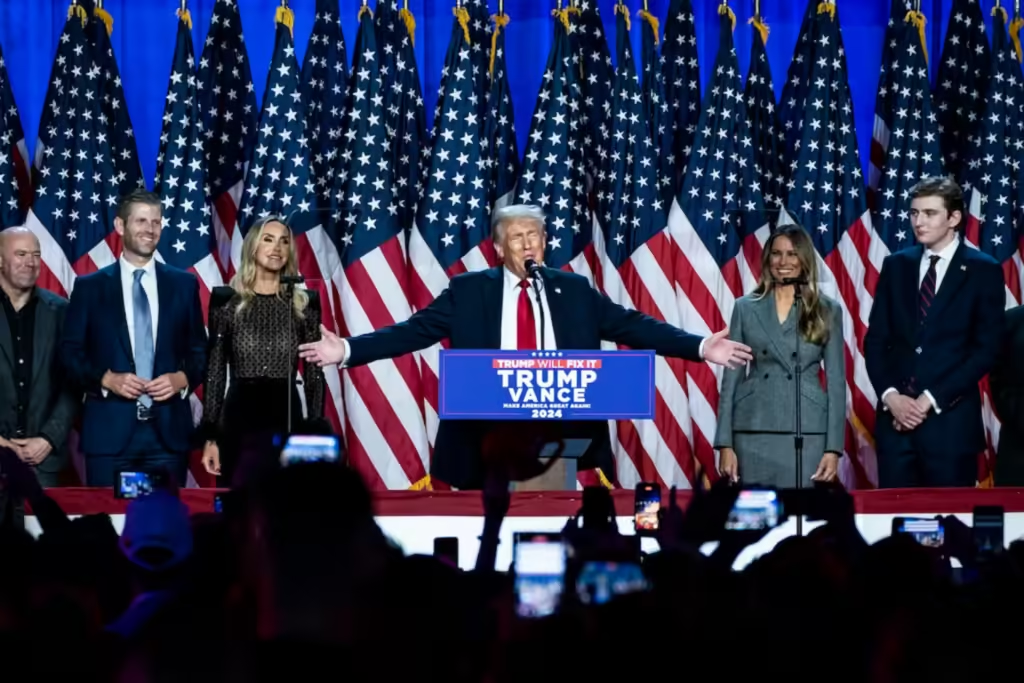The United States and Colombia narrowly averted a potential trade war after reaching a late-night agreement on Sunday. The White House announced that Colombia has consented to accept deported migrants transported via U.S. military aircraft, effectively addressing a key issue in President Donald Trump’s immigration crackdown.
President Trump had previously threatened steep tariffs and sanctions against Colombia in response to its initial refusal to allow military flights carrying deportees. However, in a statement released Sunday evening, the White House confirmed that Colombia had agreed to the terms, thereby halting the proposed penalties.

White House Secures Concessions
“The Government of Colombia has agreed to all of President Trump’s terms, including the unrestricted acceptance of all illegal aliens from Colombia returned from the United States,” the White House statement read. The agreement explicitly allows U.S. military aircraft to transport deported migrants without any limitations or delays.
The White House added that draft orders imposing tariffs and sanctions would remain “held in reserve and not signed unless Colombia fails to honor this agreement.”

Colombia’s Response at White House
Colombian Foreign Minister Luis Gilberto Murillo confirmed the resolution, stating, “We have overcome the impasse with the U.S. government.” He added that the Colombian presidential plane was ready to receive deported citizens, ensuring their return on deportation flights scheduled for Monday morning.
Colombia’s decision follows weeks of tension. President Gustavo Petro had strongly condemned the use of military deportation flights, likening such actions to inhumane practices. “We are the opposite of the Nazis,” Petro declared on social media platform X. Despite his earlier opposition, Petro expressed willingness to repatriate deported migrants on civilian flights, even offering his presidential plane for a “dignified return.”
Proposed U.S. Sanctions and Tariffs
Had the agreement fallen through, the U.S. was prepared to implement severe economic measures against Colombia. These included:
- A 25% tariff on all Colombian goods entering the U.S., escalating to 50% within a week if noncompliance persisted.
- A travel ban and visa revocations targeting Colombian government officials.
- Emergency financial sanctions impacting Colombia’s treasury, banking, and financial sectors.
President Trump also proposed increased border inspections on Colombian nationals and cargo, further tightening economic pressure on the South American nation.
Wider Implications for Trade and Diplomacy
Colombia, the third-largest U.S. trading partner in Latin America, relies heavily on the United States, its largest trading partner. The dispute had the potential to significantly disrupt this crucial economic relationship.
Additionally, the U.S. State Department had already suspended visa processing at its embassy in Bogotá, signaling the seriousness of the standoff.
Trump’s Immigration Crackdown Intensifies
President Trump’s administration has made immigration enforcement a central pillar of its agenda. Since taking office just days ago, Trump declared illegal immigration a national emergency, ramped up border security measures with the help of the U.S. military, restricted asylum claims, and introduced plans to limit citizenship for children born on U.S. soil.
Neighboring countries have also pushed back against the administration’s aggressive measures. Last week, Mexico refused to permit U.S. military aircraft carrying deported migrants to land. In response, Trump is reportedly considering 25% tariffs on imports from Canada and Mexico starting February 1, targeting countries he accuses of insufficient action against illegal immigration and fentanyl trafficking.
A Fragile Truce
While Sunday’s agreement temporarily diffuses tensions between the U.S. and Colombia, it underscores the fragile nature of U.S. immigration diplomacy under Trump’s administration. The outcome highlights Colombia’s significant reliance on U.S. trade while showcasing the Trump administration’s willingness to leverage economic power to achieve its policy goals.
For now, the threatened trade war is on hold, but the stakes remain high as both nations move forward under the terms of this contentious agreement.



